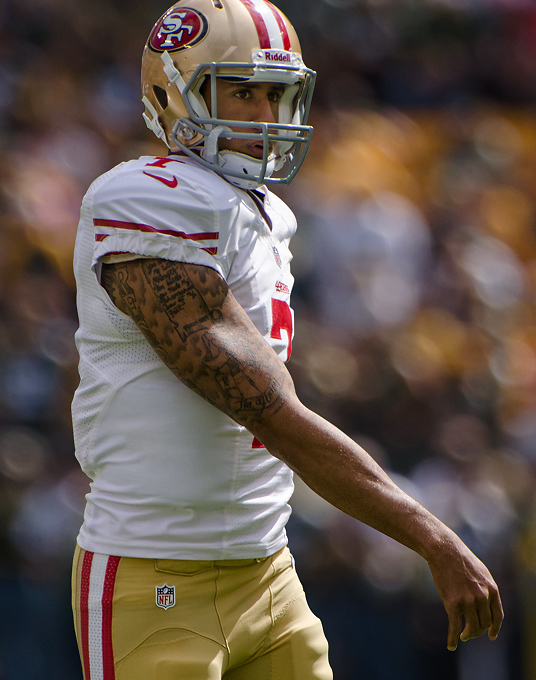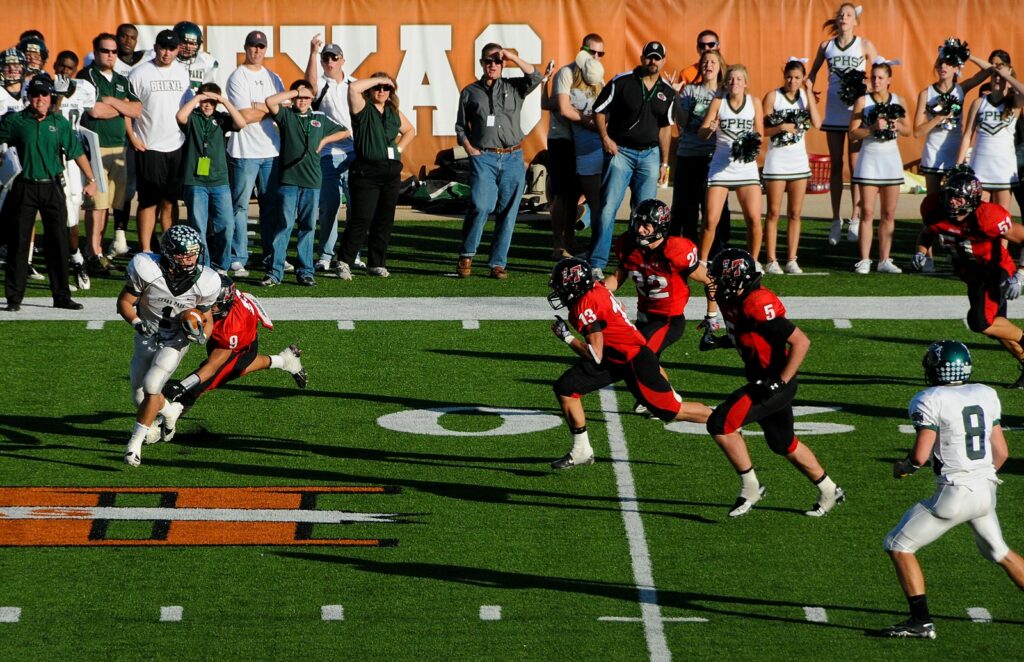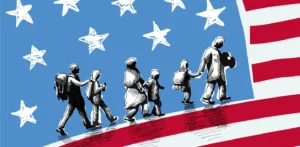Throughout history, most people have seen sports as a leisure activity apart from serious political and social issues. Despite its evolution, sports are sometimes regarded as a phenomenon unrelated to politics. Sports Politics; refers to the complex web of power dynamics, decision-making processes, and relationships that exist inside and between sports organizations, governing bodies, athletes, coaches, sponsors, spectators, and other stakeholders in the sports sector. 1 To understand what this term means we must understand what each of these terms holds in our society.
What does Sports mean to our society? Sports have an incredible ability to bring people together in ways that few other activities can. Sports include elements of competition, athletic ability, team play and are defined by rules outlined by governing bodies. While sports have positive value and provide many benefits, they also have detractors, as do many other activities in life in which we engage and receive value. Sports venues reflect our political values, priorities, sensibilities, and even neuroses. 2 With the advantages come cons, such as cheating and scandals, which we see all the time. Now we move onto ‘politics’ is the process of attaining and exerting authority within a government to define and achieve certain goals, particularly those involving resource allocation. It is the collection of actions linked with collective decision-making or other types of individual power relations, such as resource distribution or status. Now combining these two fascinating topics we reach sports politics. Is there a relationship between these two or are there opposites from different worlds? There have been instances where events in history have occurred locally, domestically, and internationally combining both.
How has the media affected Sport’s Politics? It emphasizes athletes and their influence. Athletes used to go broke and be labeled “dumb jocks” by society. They are now smart, intelligent, wealthy, and influential. So, of course, all the major news outlets want to interview them. With athletes having so much influence and power, the media can attempt to sway them toward their political agenda. Mass media communication has helped audiences become more socially and politically involved, making it easier for them to take part in events. Often, we can see the media unceasingly illustrate politics as merely a game. 3 Social media platforms have enabled fans to express their thoughts about their favorite teams or celebrities, culminating in the development of fandom culture.

Let’s investigate an incident that occurred in the Lone Star State, commonly known as Texas. There was a lot of attention roaring from the media regarding a sophomore Lake Travis High School football player, Carter Mannon. We’ve all heard the common saying that boys will be boys, but this situation went beyond that and was foul play. Before playing their archrivals, Westlake High School, Mannon’s teammates had played a prank on him before the game inside the locker room. “When he grabbed his jersey, peanuts fell out everywhere. He realized there were some still left in his cleats. He looked at his arm, [and] he’s got hives already starting to develop”, addressed by Shawna Mannon, his mother. 4 This prank included pouring peanuts and peanut butter into Mannon’s locker. It was widely known that Mannon had a deathly peanut allergy and just being surrounded by them left his body in shock from that unexpected fallout. This event led to disciplinary actions for those who were involved. Yet, all this created, “was a lot of bullying that came after.” 5 Mannon’s mother approached the school board in November to report the incident, and “at that point, they opened an investigation on the bullying. They decided that it did not qualify as bullying.” 6 It was announced that Lake Travis School District had dismissed it as just something innocent and bluntly ignored. Was this biased based on saving the reputation of the famous Lake Travis Football dynasty? Where famous alumni such as Baker Mayfield, Garrett Wilson, Cameron Dicker, and Brendan Jaimes to name a few attended. Now, Mannon’s mother is working with lobbyists to help athletes in situations like Mannon’s.

Beginning in August 2016, several National Football League (NFL) players defied tradition by kneeling instead of standing during the “Star-Spangled Banner” to protest racial inequality and police brutality. Fans, lawmakers, and the general public all praised and criticized the behavior, while NFL team owners and executives condemned it unequivocally. The act of dissent, perceived as disruptive to the league and interfering with fans’ enjoyment, had serious career ramifications for the kneeling players. The San Francisco 49ers quarterback Colin Kaepernick was the first to take a knee. NFL owners and executives denounced Kaepernick, who opted out of his contract the following year and has yet to return to the league. NFL executive opinions have changed since then, particularly in the aftermath of the 2020 murder of George Floyd in police custody and the accompanying wave of Black Lives Matter protests. NFL Commissioner Roger Goodell and league owners publicly proclaimed their desire to be more mindful of the need for racial unity. Goodell was quoted as saying, “I support our players when they want to see change in society, and we don’t live in a perfect society,” he added. “On the other hand, we believe very strongly in patriotism in the NFL. I personally believe very strongly in that.”7 According to Goodell, obviously the “take a knee” protests are an example of employee activism that violates workplace behavioral standards. ESPN and competitors ditch their stick to the sports mantra where “the network has all but ditched its “stick to sports” mandate and made an about-face in how it treats activism and political commentary on its programs.” 8The way protests are viewed is decided by how sympathetic the organization’s decision-makers are to the cause.

I’m sure we’ve all experienced those times sitting by our television set with our families watching the most looked forward event that only happens every four years. The Olympic Games bring many nations together to honor athletics and their mental and physical strength, strategy, and power. Previously, athletes have used their time at the Olympics to make political remarks. However, the International Olympic Committee does not approve of individual athletes using the games as a platform. It is an ideal setting for using soft power in diplomatic situations. If we go back to 1952 when the Summer Olympics took place in Helsinki, Finland. The Soviet Union’s statement that it would compete drew the Olympics into the battle for overall domination. “In 1951, the USSR produced the equivalent of $8.2 billion in today’s money on sports equipment. It was part of an effort designed to, not just close the gap on the Americans, but surpass them.” 9 The Olympic Movement helped achieve this goal since the games provided a very prominent yet low-stakes forum for superpower competitions. “The Soviets even hosted a swanky dinner for members of the U.S. Olympic delegation replete with vodka and whitefish caught in the Volga River, toasting goodwill under paintings of Joseph Stalin and the Politburo.” 10 That summer games took on political overtones as the Cold War heated up. For many, the games became an almost symbolic struggle between the socialist and capitalist systems.” These competitions received significant media attention, and a few ended in messy or controversial boycotts in the early 1980s.
Whether we like to admit it or not, we pay more attention to professional athletes than politics—our personal heroes and idols come from sports, since many of us look up to them as we are ourselves can be aspiring athletes. Whether or not you agree with professional athletes’ ideas, it is important for us to be exposed to whatever subject they are passionate about so that we may become more conscious of our society’s problems. Athlete–activism is embedded within a much larger societal context. “A long list of athletes across various dimensions of diversity have used their affiliation with sport organizations and institutions as a platform for political activism” 11 The Mannon case is an example of how it can be embedded even at the high school level. Taking a knee during the singing of the national anthem started with professional football and adapted by other professional sports, and regulated at the league level. The Olympic Games has historically stood for country nationalism and can impact international politics. Lastly, it is crucial to emphasize the significance of sports politics on and off the field to highlight the impact it has on various aspects of the sports industry itself. Understanding and acknowledging the role of politics in sports can lead to a more informed and comprehensive approach to managing and promoting sporting events that both players and fans can enjoy.
- Harris, Spencer, and Mathew, Dowling. “The Influence of Power and Politics in Sport.” Managing Sport Across Borders, February 20, 2020, 101–26. https://doi.org/10.4324/9780429316036-5. ↵
- Gift, Thomas, and Andrew, Miner. “‘Dropping the Ball’: The Understudied Nexus of Sports and Politics.” World Affairs 180, March 2017, 127–61. https://doi.org/10.1177/0043820017715569. ↵
- Shen, Jonathan, and Courtenay Shrimpton. “Sports at Play in American Politics.” Journal of Student Research 10, November 18, 2021. https://doi.org/10.47611/jsrhs.v10i3.1876. ↵
- Shultz, Cara Lynn. “Football Players Put Peanuts in Allergic Teammate’s Locker – School District Says It’s Not Bullying (Exclusive).” PeopleMagazine, February 29, 2024. https://people.com/texas-football-players-peanuts-allergic-teammate-locker-school-says-not-bullying-8601499. ↵
- Shultz, Cara Lynn. “Football Players Put Peanuts in Allergic Teammate’s Locker – School District Says It’s Not Bullying (Exclusive).” PeopleMagazine, February 29, 2024. https://people.com/texas-football-players-peanuts-allergic-teammate-locker-school-says-not-bullying-8601499. ↵
- Shultz, Cara Lynn. “Football Players Put Peanuts in Allergic Teammate’s Locker – School District Says It’s Not Bullying (Exclusive).” PeopleMagazine, February 29, 2024. https://people.com/texas-football-players-peanuts-allergic-teammate-locker-school-says-not-bullying-8601499. ↵
- Mather, Victor. “A Timeline of Colin Kaepernick vs. the N.F.L.” The New York Times, February 15, 2019. https://www.nytimes.com/2019/02/15/sports/nfl-colin-kaepernick-protests-timeline.html. ↵
- Flynn, Kerry. “ESPN and Competitors Ditch Their ‘Stick to Sports’ Mantra. Politics Is Now Fair Game | CNN Business.” CNN, September 1, 2020. https://www.cnn.com/2020/09/01/media/politics-in-sports-media/index.html. ↵
- Graves, Will. “1952 Helsinki: The Cold War Comes to the Olympics.” AP News, April 20, 2021. https://apnews.com/article/sports-cold-war-helsinki-sports-general-finland-e78b46f785fb8d9c1d0b4cc647d5b8ac. ↵
- Graves, Will. “1952 Helsinki: The Cold War Comes to the Olympics.” AP News, April 20, 2021. https://apnews.com/article/sports-cold-war-helsinki-sports-general-finland-e78b46f785fb8d9c1d0b4cc647d5b8ac. ↵
- Agyemang, Kwame J., John N. Singer, and Anthony J. Weems. “‘Agitate! Agitate! Agitate!’: Sport as a Site for Political Activism and Social Change.” Organization 27, no. 6 (June 9, 2020): 952–68. https://doi.org/10.1177/1350508420928519. ↵




15 comments
Eliana Olivas
Great job Stela! I love how you brought attention to how intertwined politics and sports truly are, and how often times atheltes are censored or bullied for sharing their views, even at the high school level. You have inspired me to be more attentive to “power plays” and show support for athletes to continue to have the freedom to stand up for what they believe in.
TZertuche
Amazing article!! Having a daughter who is student athlete can totally relate.
Lindsey B
Great read!
rwilliams33
Amazing work! Loved this read!!
Olivia
Love your how well-articulated and insightful your analysis is! It is a great reminder of the profound ways sports can promote social change.
Karen Kondo
Good article Stela! I was enjoying to read this article. I agree that sports have a unique ability to unite people and reflect our society’s values. They offer fun and competition, but also face challenges like cheating. Good job!
Janel
Very clear and informative story!! I liked it!!
Selina Wu
Wow! This article was very nicely written. Being a student athlete myself, I can relate and understand to this a lot!
Linda Lopez
Great article! Wonderful insight into a very crucial part of sports that not many people talk about!
Alejandra Rueda
Great article!